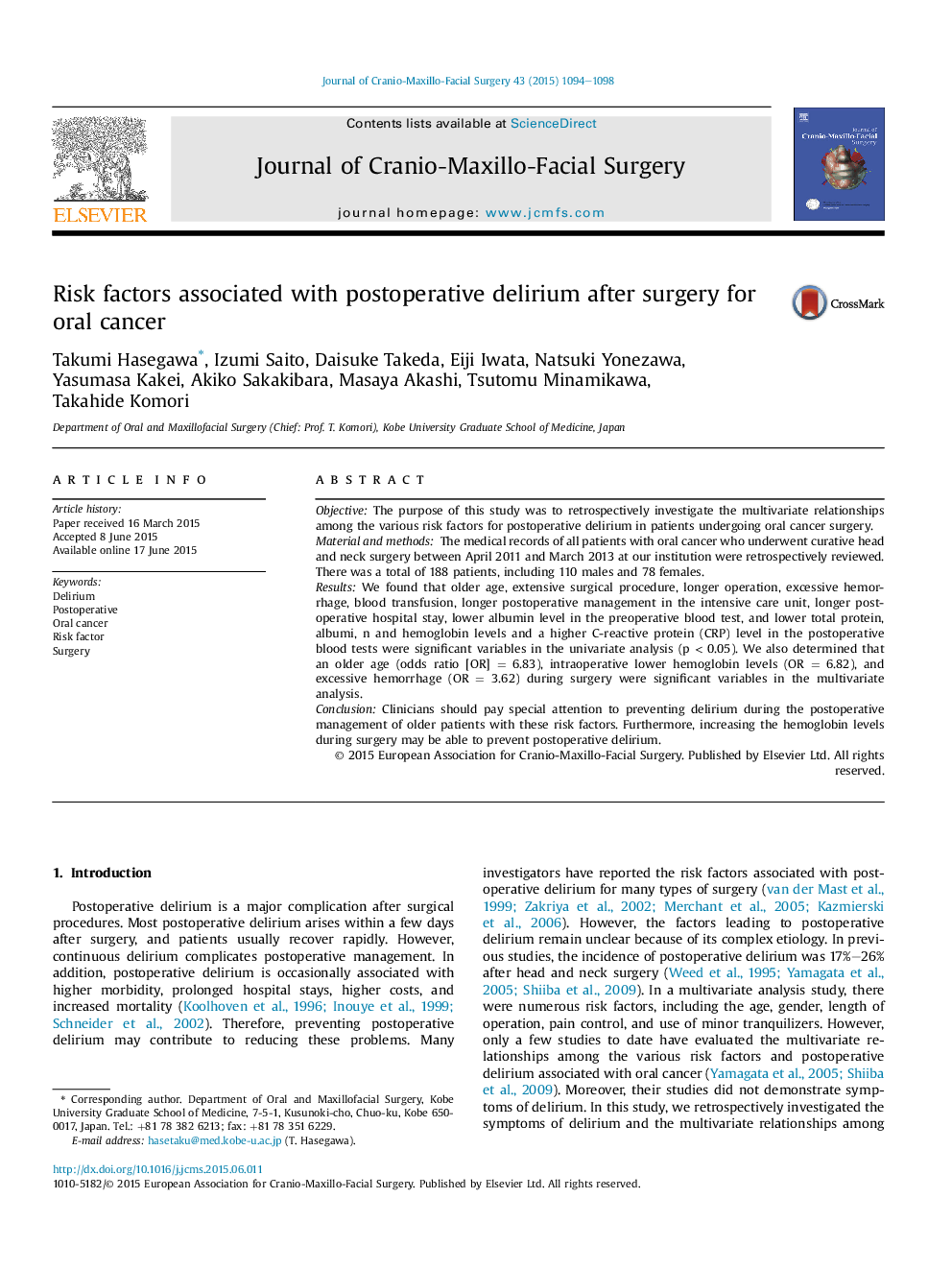| Article ID | Journal | Published Year | Pages | File Type |
|---|---|---|---|---|
| 3142347 | Journal of Cranio-Maxillofacial Surgery | 2015 | 5 Pages |
ObjectiveThe purpose of this study was to retrospectively investigate the multivariate relationships among the various risk factors for postoperative delirium in patients undergoing oral cancer surgery.Material and methodsThe medical records of all patients with oral cancer who underwent curative head and neck surgery between April 2011 and March 2013 at our institution were retrospectively reviewed. There was a total of 188 patients, including 110 males and 78 females.ResultsWe found that older age, extensive surgical procedure, longer operation, excessive hemorrhage, blood transfusion, longer postoperative management in the intensive care unit, longer postoperative hospital stay, lower albumin level in the preoperative blood test, and lower total protein, albumi, n and hemoglobin levels and a higher C-reactive protein (CRP) level in the postoperative blood tests were significant variables in the univariate analysis (p < 0.05). We also determined that an older age (odds ratio [OR] = 6.83), intraoperative lower hemoglobin levels (OR = 6.82), and excessive hemorrhage (OR = 3.62) during surgery were significant variables in the multivariate analysis.ConclusionClinicians should pay special attention to preventing delirium during the postoperative management of older patients with these risk factors. Furthermore, increasing the hemoglobin levels during surgery may be able to prevent postoperative delirium.
